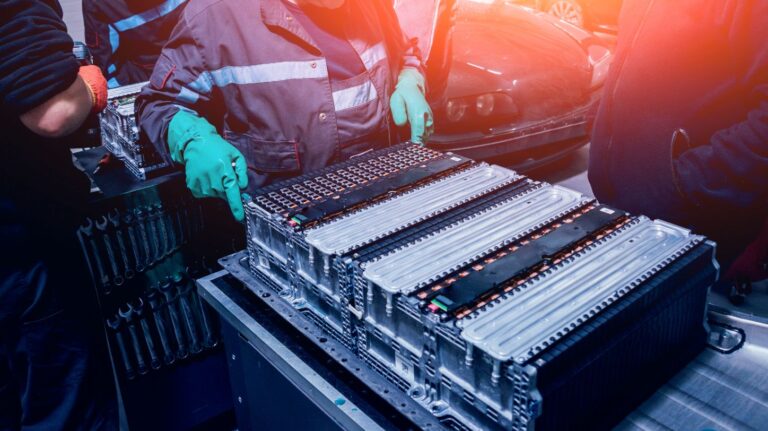A report released by the UK’s House of Commons has recommended the construction of gigafactories to maintain Britain’s relevancy in the battery manufacturing sector.
Gigafactories are large factories capable of manufacturing battery cells or fuel-cells at scale, specifically lithium-ion batteries, for electric vehicles (EVs).
The launch of the inquiry [January 2023] coincided with news that Britishvolt, a UK battery start-up, had entered into administration after struggling to raise sufficient investment to proceed with its gigafactory near Blyth in Northumberland.
The UK government’s current Net Zero 2040 plan has fostered a substantial increase in EVs for both commercial and public use.
However, for its decarbonisation plan to be achieved, securing or mass-producing lithium-ion batteries has become imperative.
READ MORE: Toyota to develop EV battery ‘with 620-mile range’
Many gigafactories are already under construction or in operation throughout Europe.
In Germany, all major centres are now connected to each other and within cities by electrically powered trains, subways and city trains, many of which are reported to use these batteries. By 2030, Germany is expected to have the largest amount of battery manufacturing capacity in Europe.
Eastern European countries, such as Hungary and Poland, have attracted significant investment from Asian battery manufacturers, partly due to the cheaper land and labour in these countries, but also because of their proximity to the German car industry.
The European Battery Alliance has set an objective for 90% of Europe’s annual battery demand to be supplied from within the EU by 2030.
The pipeline of gigafactories planned in the United States has also grown rapidly at the expense of investments in Europe since the Inflation Reduction Act was introduced in August 2022.
Larger gigafactories, such as the Faraday Institution, has projected that the UK will need 100GWh of battery manufacturing capacity by 2030 to satisfy demand for batteries from the UK’s automotive industry and other sectors.
Smaller-scale gigafactories or even megawatt-scale factories could be used to cater for public transport manufacturers.
The government’s Advanced Manufacturing Plan covers the automotive industry and other sectors, as well as a UK Battery Strategy.
The House of Commons has suggested a 10-year plan be implemented to match British market competitors.
It also recommends targeting at least 90% of the UK’s annual demand for batteries to be met from domestic supplies by 2030.
Applications for the third annual CiTTi Awards, which will be held in London on 26 November 2024 at the De Vere Grand Connaught Rooms, will open March 2024. Visit www.cittiawards.co.uk to learn more about this unmissable event for the UK’s transportation sector.





